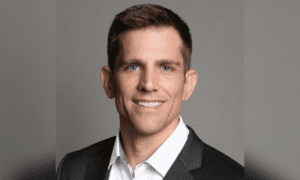Why allied health professionals need healthcare insurance

3 minute read
Every day, people turn to allied health professionals for advice, support, and treatment. These professionals play a critical role in the healthcare system as part of a multidisciplinary approach to health and wellbeing.
Who exactly are allied health professionals? They include registered nurses, occupational therapists, physiotherapists, medical radiation technologists, personal support workers, optometrists, dental hygienists, psychologists, audiologists, and social workers — to name just a few.
These professionals help to round out a holistic approach to healthcare. For example, if a doctor diagnoses a patient with diabetes, allied health professionals can help that patient manage their diabetes. A dietician will develop an individualized meal plan, a podiatrist can test their feet for nerve damage, and a massage therapist may help to manage painful neuropathies.
Despite their different roles, allied health professionals all have one thing in common: they could face allegations of negligence or breach of duty when performing professional services or administrative duties.
Make sure you’re covered for professional liability
If a patient alleges an error, omission, or negligence in the consultation or treatment process that directly results in bodily injury, the healthcare professional could be sued — and on the hook for hefty legal fees.
For example, if a physiotherapist misdiagnoses a patient injury and implements a program that leads to further movement disfunction, the physiotherapist could be sued by the patient.
“A healthcare professional definitely needs professional liability insurance,” says Michael Hill, executive underwriter at TruShield Insurance.
“Professional liability insurance for allied health professionals — sometimes called medical malpractice coverage— can help protect allied healthcare professionals from claims that they are legally obligated to pay, because of a medical incident that resulted from professional services they provided.”
Professional liability coverage should be a part of a comprehensive insurance plan that also includes coverages like cyber, commercial general liability, property, and equipment breakdown.
What other types of healthcare insurance do allied health professionals need?
Commercial general liability (CGL) insurance
Commercial general liability (CGL) insurance is designed to protect you from a loss if you’re found legally liable for causing a patient to suffer a bodily injury (e.g. due to a slip and fall) or for damaging any of their property.
Coverage under commercial general liability excludes any loss resulting from your professional services. For example, if your services causes bodily injury to a client. For this reason, every allied healthcare professional also needs to obtain professional liability coverage to respond to situations where their professional services are responsible for causing a patient to suffer a bodily injury.
Property insurance
Allied health professionals should also consider property insurance. Property insurance is designed to provide coverage for things like tools and equipment owned by and used in the business, for insurable losses like fire, vandalism, or theft.
Equipment breakdown insurance
For allied healthcare professionals who rely on highly specialized equipment to do their job, it may be worth investing in equipment breakdown insurance, which is designed to respond to a sudden and accidental electrical or mechanical breakdown.
Cyber insurance
Allied healthcare professionals should also consider cyber risk and data breach coverage — especially since healthcare professionals handle highly sensitive client data. In 2021, 41 per cent of small business owners that suffered from a cyber attack reported that it cost them at least $100,000, according to the Insurance Bureau of Canada. Cyber event coverage can help small businesses that rely on technology mitigate some of the expenses they may incur as a result of a cyber attack.
Do you have the right insurance coverage?
Allied health professionals working out of their home and/or using their personal vehicle to visit clients’ homes should make sure they have commercial coverage — because their personal policies may not cut it.
“Any time you’re using your vehicle for business purposes, you need to make sure you have a commercial auto policy in place” says Hill.
The same goes for an allied health professional operating out of a home office. “In most cases, their home insurance is going to provide little to no coverage whatsoever,” says Hill. “Operating any business out of your home requires a commercial insurance policy.”
If you have a commercial healthcare insurance policy, make sure you keep it up to date. If you change locations, expand the business, have a noticeable change in revenue, or start offering another modality, you need to let your insurer know.
“If you change or add a business location, make sure your policy reflects this location change. If you forget to notify your insurer of your new location and have a business loss, you’re going to be out of luck,” says Hill. “Always keep your policy up to date.”
Protect yourself with the right insurance
As an allied health professional, you work hard to make sure that your customers are well taken care of. Now let us take care of you! To learn more about how insurance can help protect you, your assets, and your bottom line, visit our insurance for healthcare professionals page today.
This blog is provided for information only and is not a substitute for professional advice. We make no representations or warranties regarding the accuracy or completeness of the information and will not be responsible for any loss arising out of reliance on the information.






